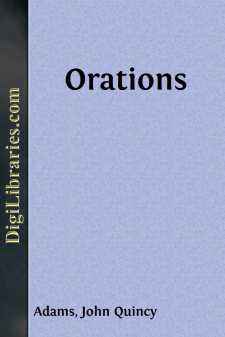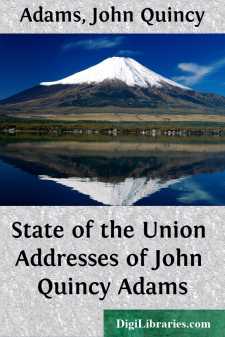Categories
- Antiques & Collectibles 13
- Architecture 36
- Art 48
- Bibles 22
- Biography & Autobiography 813
- Body, Mind & Spirit 142
- Business & Economics 28
- Children's Books 16
- Children's Fiction 13
- Computers 4
- Cooking 94
- Crafts & Hobbies 4
- Drama 346
- Education 46
- Family & Relationships 57
- Fiction 11829
- Games 19
- Gardening 17
- Health & Fitness 34
- History 1377
- House & Home 1
- Humor 147
- Juvenile Fiction 1873
- Juvenile Nonfiction 202
- Language Arts & Disciplines 88
- Law 16
- Literary Collections 686
- Literary Criticism 179
- Mathematics 13
- Medical 41
- Music 40
- Nature 179
- Non-Classifiable 1768
- Performing Arts 7
- Periodicals 1453
- Philosophy 64
- Photography 2
- Poetry 896
- Political Science 203
- Psychology 42
- Reference 154
- Religion 513
- Science 126
- Self-Help 84
- Social Science 81
- Sports & Recreation 34
- Study Aids 3
- Technology & Engineering 59
- Transportation 23
- Travel 463
- True Crime 29
Orations
Categories:
Description:
Excerpt
Would it be an unlicensed trespass of the imagination to conceive that on the night preceding the day of which you now commemorate the fiftieth anniversary—on the night preceding that thirtieth of April, 1789, when from the balcony of your city hall the chancellor of the State of New York administered to George Washington the solemn oath faithfully to execute the office of President of the United States, and to the best of his ability to preserve, protect, and defend the constitution of the United States—that in the visions of the night the guardian angel of the Father of our Country had appeared before him, in the venerated form of his mother, and, to cheer and encourage him in the performance of the momentous and solemn duties that he was about to assume, had delivered to him a suit of celestial armor—a helmet, consisting of the principles of piety, of justice, of honor, of benevolence, with which from his earliest infancy he had hitherto walked through life, in the presence of all his brethren; a spear, studded with the self-evident truths of the Declaration of Independence; a sword, the same with which he had led the armies of his country through the war of freedom to the summit of the triumphal arch of independence; a corselet and cuishes of long experience and habitual intercourse in peace and war with the world of mankind, his contemporaries of the human race, in all their stages of civilization; and, last of all, the Constitution of the United States, a shield, embossed by heavenly hands with the future history of his country?
Yes, gentlemen, on that shield the Constitution of the United States was sculptured (by forms unseen, and in characters then invisible to mortal eye), the predestined and prophetic history of the one confederated people of the North American Union.
They had been the settlers of thirteen separate and distinct English colonies, along the margin of the shore of the North American Continent; contiguously situated, but chartered by adventurers of characters variously diversified, including sectarians, religious and political, of all the classes which for the two preceding centuries had agitated and divided the people of the British islands—and with them were intermingled the descendants of Hollanders, Swedes, Germans, and French fugitives from the persecution of the revoker of the Edict of Nantes.
In the bosoms of this people, thus heterogeneously composed, there was burning, kindled at different furnaces, but all furnaces of affliction, one clear, steady flame of liberty. Bold and daring enterprise, stubborn endurance of privation, unflinching intrepidity in facing danger, and inflexible adherence to conscientious principle, had steeled to energetic and unyielding hardihood the characters of the primitive settlers of all these colonies. Since that time two or three generations of men had passed away, but they had increased and multiplied with unexampled rapidity; and the land itself had been the recent theatre of a ferocious and bloody seven years' war between the two most powerful and most civilized nations of Europe contending for the possession of this continent.
Of that strife the victorious combatant had been Britain. She had conquered the provinces of France. She had expelled her rival totally from the continent, over which, bounding herself by the Mississippi, she was thenceforth to hold divided empire only with Spain. She had acquired undisputed control over the Indian tribes still tenanting the forests unexplored by the European man. She had established an uncontested monopoly of the commerce of all her colonies. But forgetting all the warnings of preceding ages—forgetting the lessons written in the blood of her own children, through centuries of departed time—she undertook to tax the people of the colonies without their consent.
Resistance, instantaneous, unconcerted, sympathetic, inflexible resistance, like an electric shock, startled and roused the people of all the English colonies on this continent.
This was the first signal of the North American Union. The struggle was for chartered rights—for English liberties—for the cause of Algernon Sidney and John Hampden—for trial by jury—the Habeas Corpus and Magna Charta.
But the English lawyers had decided that Parliament was omnipotent—and Parliament, in its omnipotence, instead of trial by jury and the Habeas Corpus, enacted admiralty courts in England to try Americans for offences charged against them as committed in America; instead of the privileges of Magna Charta, nullified the charter itself of Massachusetts Bay; shut up the port of Boston; sent armies and navies to keep the peace and teach the colonies that John Hampden was a rebel and Algernon Sidney a traitor....



